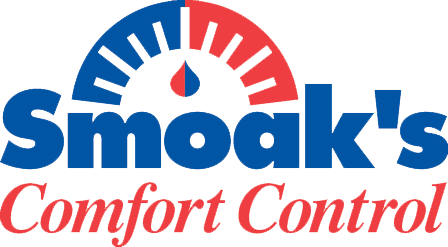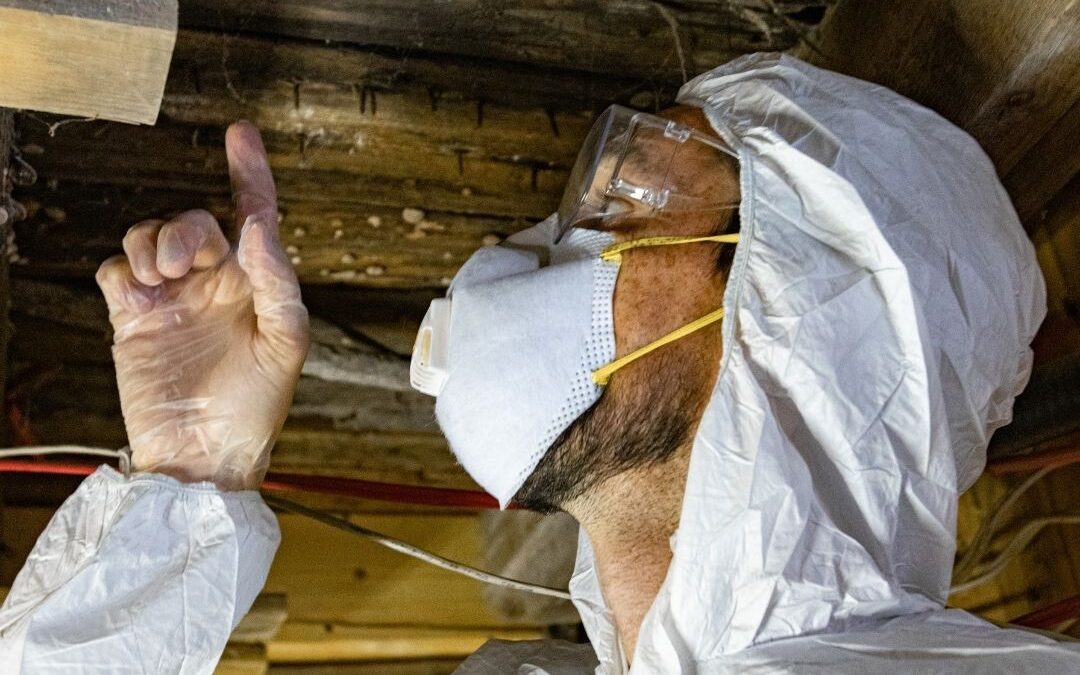Why Dehumidification Matters for Your Home
In Charleston, SC, managing indoor humidity is essential for maintaining a comfortable and healthy living environment. With the area’s hot, humid climate, moisture can quickly accumulate inside homes, leading to various issues. While air conditioning systems can help regulate temperature, they may not always be effective at managing excessive humidity. This is where a dehumidifier comes in, helping remove moisture from the air and improve indoor air quality. But how do you know when to get a dehumidifier? Let’s explore the key signs your home might need.
Understanding Humidity Levels
What is Considered High Humidity?
High humidity is common in many homes and businesses, especially in areas with high temperatures and rainfall. According to the Environmental Protection Agency (EPA), indoor humidity levels above 60% are considered high. At this level, the air is saturated with moisture, creating an ideal environment for mold growth, dust mites, and other allergens to thrive. Prolonged exposure to high humidity can lead to various health issues, including respiratory problems, skin irritation, and infections. Keeping your home’s humidity levels in check is crucial for maintaining a healthy living environment.
How to Measure the Humidity Level in Your Home
Measuring the humidity level in your home is crucial to determining whether you need a dehumidifier. You can use a hygrometer, a device that measures the air’s relative humidity (RH) level. Hygrometers are available at most hardware stores or online. Alternatively, you can hire an HVAC company to measure the humidity level in your home. They will use specialized equipment to determine the RH level and provide recommendations for improving indoor air quality. Knowing your home’s relative humidity can help you take the necessary steps to maintain a comfortable and healthy indoor environment.
Effects of High Humidity Levels on Your Home and Health
High humidity levels can have severe consequences on your home and health. Excess moisture in the air can lead to mold growth, mildew, and structural damage to your home. Moreover, high humidity can exacerbate respiratory issues, such as asthma, and create an environment conducive to dust mites, triggering allergies. High humidity can even lead to skin irritation and infections in extreme cases. You can protect your home and health from these adverse effects by managing humidity levels.
What is a Dehumidifier, and How Does it Work?
A dehumidifier is a device that extracts excess moisture from the air, reducing indoor humidity levels. It works by drawing in moist air, cooling it to condense the water vapor, and releasing drier air into your living space. Dehumidifiers can be standalone or integrated into your HVAC system for whole-home moisture control. These systems benefit humid climates like Charleston, where humidity can quickly rise to uncomfortable and damaging levels. Dehumidifiers benefit residential and commercial customers, ensuring reliable climate control in various local communities.
Excessive Humidity: Common Problems in Charleston Homes
Homes in Charleston often face the challenge of high humidity levels, especially during the summer months. Excessive moisture can lead to structural damage, create an uncomfortable living environment, and negatively impact health. High humidity also makes it harder for your air conditioning system to cool your home efficiently, resulting in higher energy bills. If you’re noticing persistent humidity issues, it may be time to consider installing a dehumidifier to maintain optimal humidity levels between 30% and 50%.
Sign #1: Condensation on Windows
One of the first signs of high humidity in your home is condensation on your windows. If you frequently notice water droplets on windows, especially in the morning, it indicates too much moisture in the air. If left unchecked, condensation on windows can lead to more significant problems like mold growth, water damage, and even structural issues. By installing a dehumidifier, you can effectively manage humidity levels and prevent these issues from occurring.
Sign #2: Musty Odors and Mold Growth
A musty smell in your home is often the result of excess moisture, which creates the perfect environment for mold and mildew growth. Mold thrives in high-humidity conditions and can grow in hidden areas such as behind walls, under flooring, and crawl spaces. Mold not only affects the structural integrity of your home but can also cause health issues like respiratory problems and allergies. If you’re noticing musty odors or visible mold, it’s a sign that your home could benefit from a dehumidifier to remove moisture and improve indoor air quality.
Sign #3: Visible Signs of Water Damage
If you see water stains on ceilings or walls, peeling paint, or damp spots, it could be a sign that your home is dealing with excessive humidity. These visible signs of water damage indicate that moisture is seeping into your home’s structure, which can lead to costly damage over time. A dehumidifier can help by addressing the root cause—excess moisture—before it leads to more significant problems, such as rot or compromised structural integrity.
Sign #4: Increased Allergy or Asthma Symptoms
High humidity can worsen indoor air quality, increasing allergy and asthma symptoms. Dust mites, mold spores, and other allergens thrive in moist environments. If you or your family members are experiencing more frequent allergy flare-ups, difficulty breathing, or worsened asthma symptoms, it could be due to the high humidity levels in your home. A dehumidifier helps create a healthier indoor environment by reducing the moisture that allows these allergens to thrive.
Health Risks Associated with High Humidity
Skin Irritation and Infections
High humidity can lead to skin irritation and infections, particularly in individuals with sensitive skin. When the air becomes saturated with moisture, it can create an ideal environment for bacteria and fungi to grow, leading to skin infections. Moreover, high humidity can exacerbate skin conditions like eczema and acne. To mitigate these risks, it’s essential to maintain a healthy indoor humidity level, ideally between 30-50%. Doing so can ensure a more comfortable and healthier living environment for you and your family.
How Relative Humidity Affects Comfort
The relative humidity level in your home plays a significant role in how comfortable your living space feels. High relative humidity makes the air feel sticky and warm, even if your air conditioner is running. Ideally, the relative humidity in your home should be between 30% and 50% to ensure comfort and prevent moisture-related problems. If your indoor humidity levels are consistently higher, it’s time to consider installing a dehumidifier.
The Impact of Humid Air on Your Air Conditioning System
Humid air can make it harder for your air conditioning system to cool your home efficiently. When there’s too much moisture in the air, your air conditioner must work harder to remove both heat and humidity, which can lead to higher energy bills and strain on the system. Adding a dehumidifier to your HVAC system can help reduce the workload on your air conditioning unit and keep your home cool without overworking your system.
Portable vs. Whole-Home Dehumidifiers: Which is Best?
When deciding on a dehumidifier, you may wonder if a portable dehumidifier or a whole-home system is better suited for your needs. Portable dehumidifiers are great for managing moisture in smaller, localized areas, but they don’t offer the same efficiency as a whole-home system integrated into your HVAC setup. If high humidity is a persistent problem throughout your home, investing in a whole-house dehumidifier is the most effective solution.
How Dehumidifers Save Money on HVAC Services
Using a dehumidifier can help you save money on air conditioning services in the long run. By reducing the moisture load in your home, your air conditioning service needs may decrease as your system won’t have to work as hard. Not only does this lower your energy bills, but it also extends the lifespan of your HVAC equipment, preventing costly repairs or early replacements.
When to Get a Dehumidifier: Consulting an HVAC Company in Charleston, SC
Determining when to get a dehumidifier can be tricky, but consulting a professional HVAC company in Charleston, SC, can help. At Smoak’s Comfort Control, our experts assess your home’s humidity levels and provide personalized solutions based on your needs. Whether you need a standalone dehumidifier or one integrated with your HVAC system, we ensure your home maintains the ideal humidity for comfort and health.
Integrating a Dehumidifer with Your HVAC System
Adding a dehumidifier can significantly enhance your home’s comfort if you already have an HVAC system. A whole-house dehumidifier works with your HVAC system to regulate humidity throughout your home. It prevents excessive moisture buildup, improves indoor air quality, and helps your air conditioning system operate more efficiently. This integrated approach offers a more comprehensive solution than relying on portable dehumidifiers for individual rooms. Contact us today to schedule an appointment for a dehumidifier installation.

